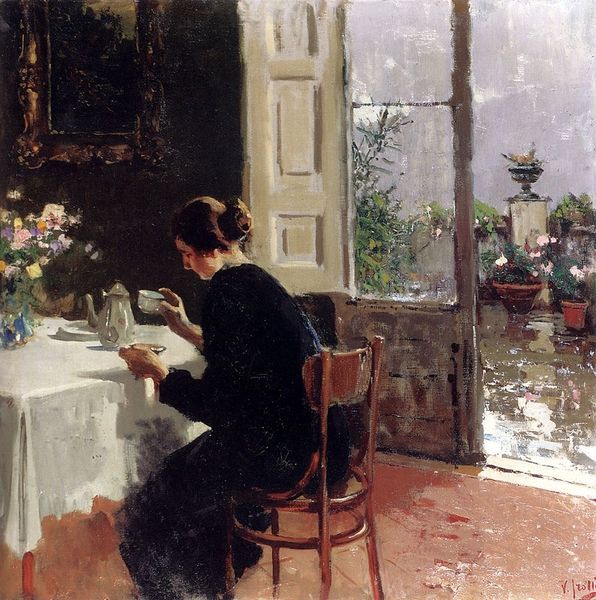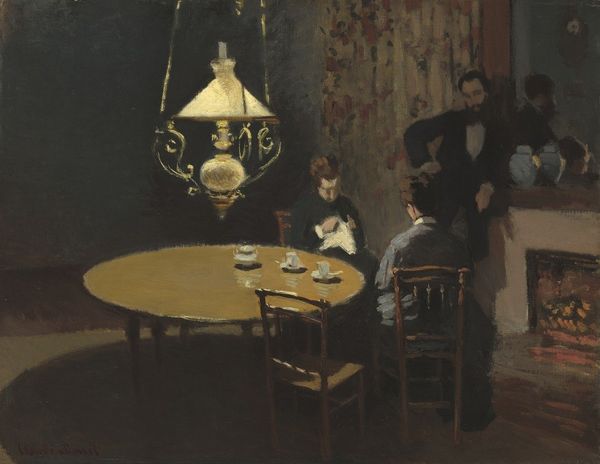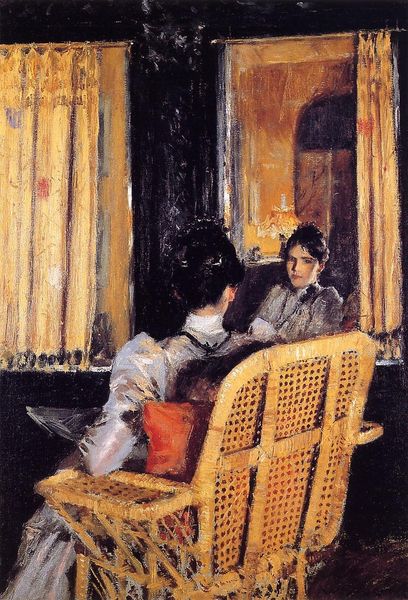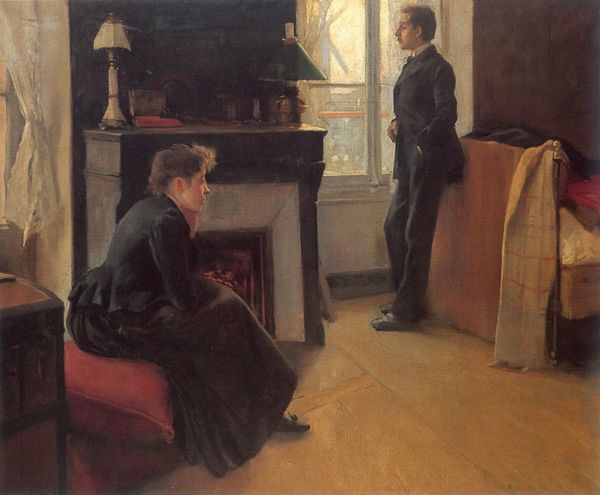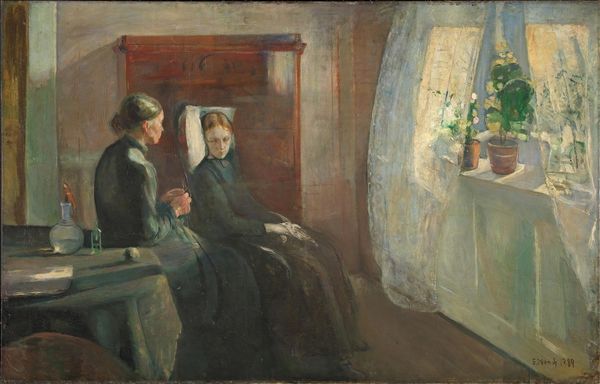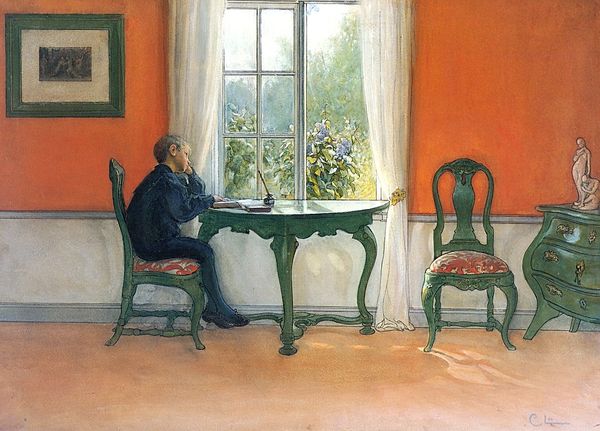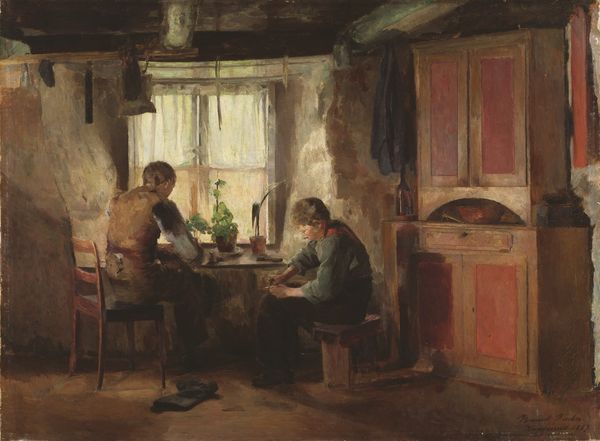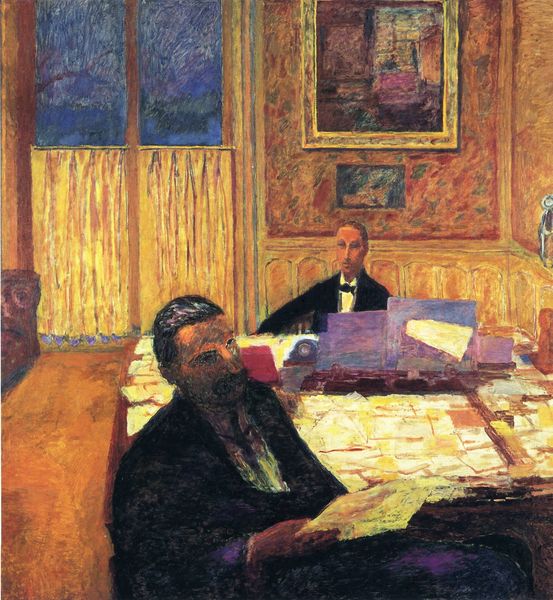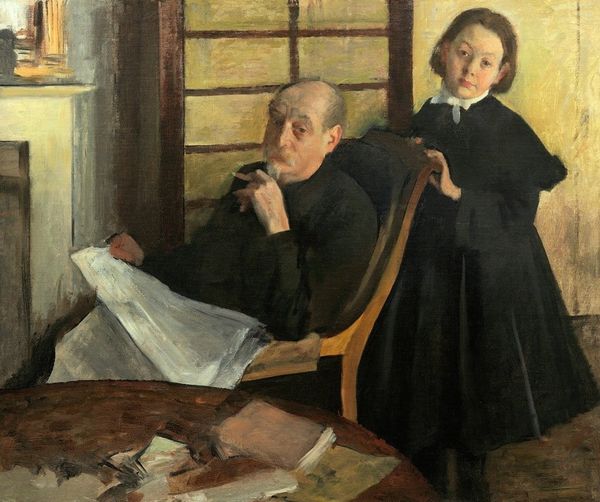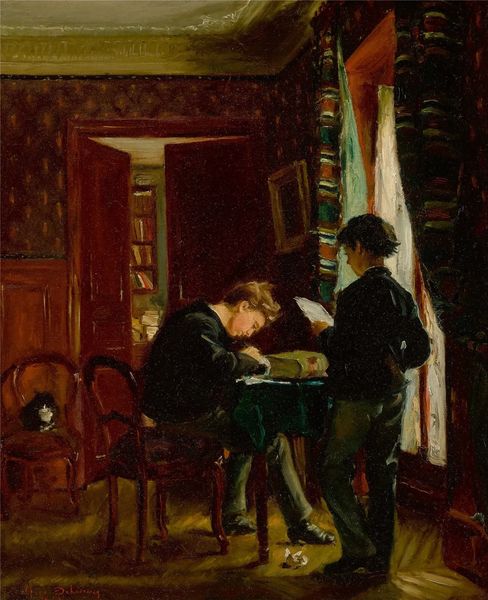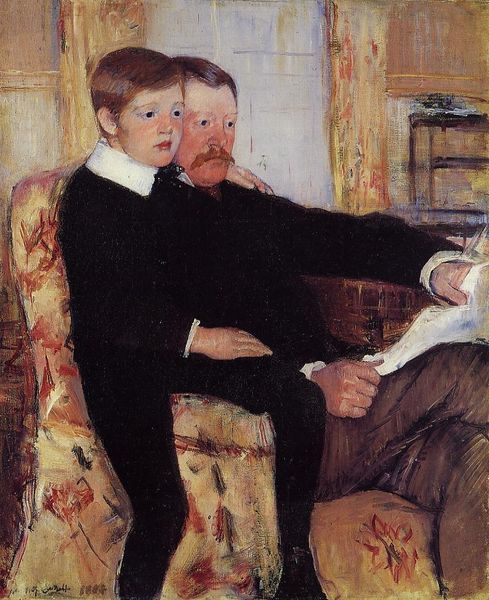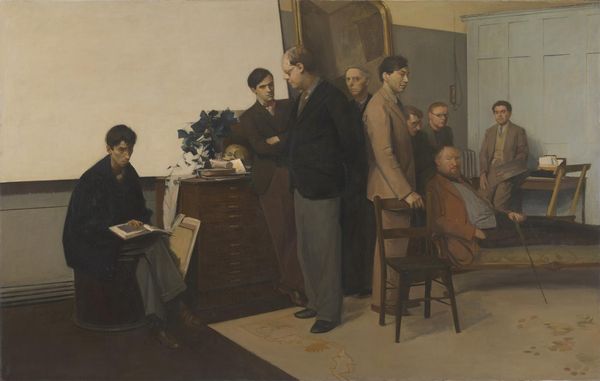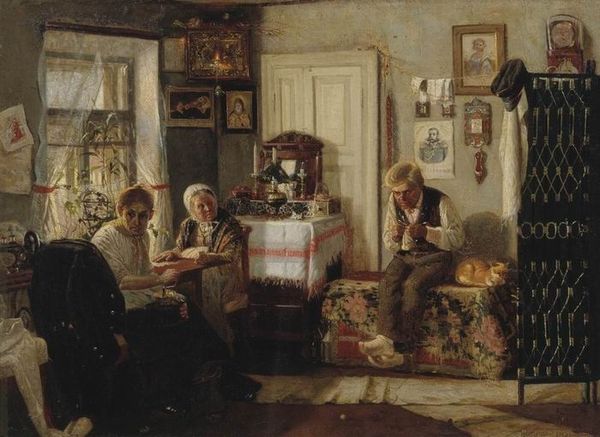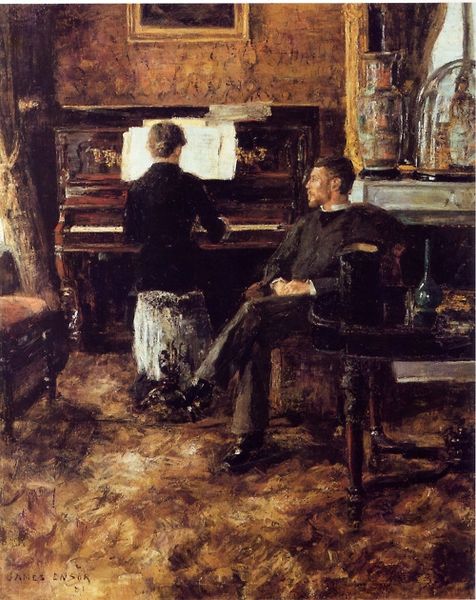
painting, oil-paint
#
conversation-piece
#
portrait
#
painting
#
impressionism
#
oil-paint
#
furniture
#
landscape
#
oil painting
#
portrait reference
#
genre-painting
#
sitting
#
portrait art
#
modernism
#
fine art portrait
Dimensions: 39.4 x 53.7 cm
Copyright: Public domain
Editor: This is Édouard Manet's "Interior at Arcachon," painted in 1871 with oil on canvas. The muted tones create a somewhat melancholic atmosphere, despite the bright light streaming in from the window. The figures are arranged with a focus on geometric arrangements of light and dark areas, and the window seems to dominate the view. What can you tell me about it? Curator: Notice how Manet structures this interior, splitting the picture plane roughly in half. We have the contained, darker space of the room on one side and the open, brighter space of the seaside on the other. The window itself acts as a structural component but, significantly, the figures do not quite engage with each other and instead appear to be focused separately in relation to each half of this carefully crafted scene. Editor: That’s interesting. I see that, with each looking outwards toward opposite directions from inside. So you think it is more about the spatial relations and how the canvas is divided up? Curator: Precisely. Manet manipulates the compositional elements – the placement of figures, furniture, and the window – to orchestrate a visual push and pull. The tension isn't necessarily in the narrative, but in how Manet directs our gaze throughout the canvas, constantly contrasting tone, mass, and perspective in the scene's construction. Note also the bold, almost sketch-like quality of the brushwork, further emphasizing the painting's artifice. Editor: So, by focusing on the structure, the window and color, you are highlighting Manet's awareness of his own artistry, rather than focusing on what’s happening. Curator: Exactly. It’s in those deliberate choices where the work's real statement resides, calling our attention not just to *what* is depicted, but crucially *how* it is depicted. The formal qualities outweigh any sentimental reading, for the scene itself and any story is of far less relevance. Editor: I appreciate the emphasis on Manet's structured visual decisions! Curator: It prompts a different way to appreciate how all painters communicate their visual style and skill.
Comments
No comments
Be the first to comment and join the conversation on the ultimate creative platform.
